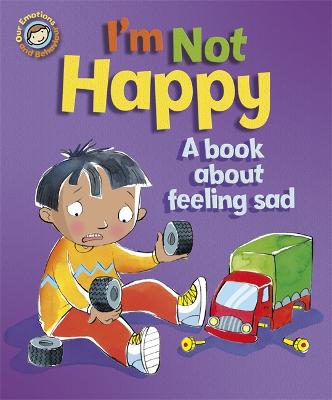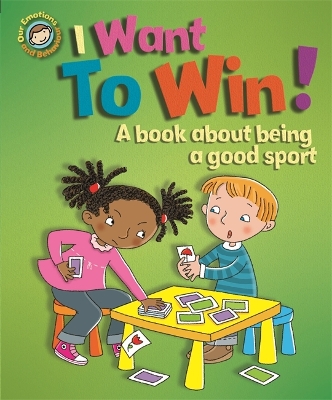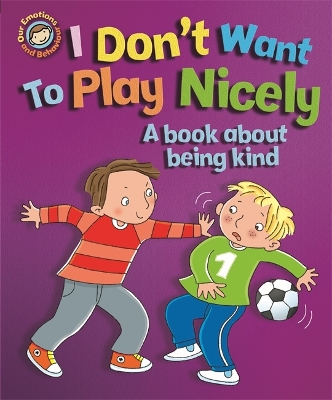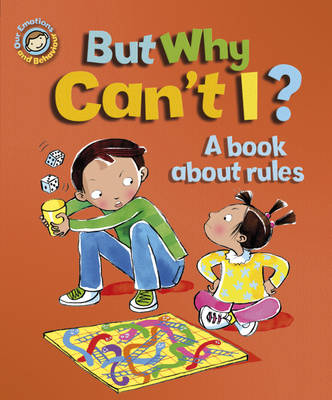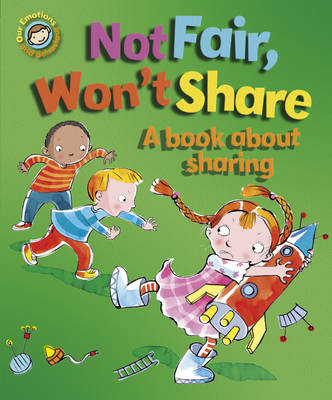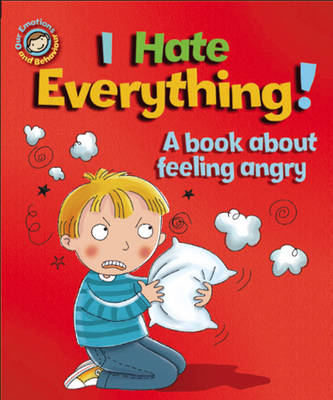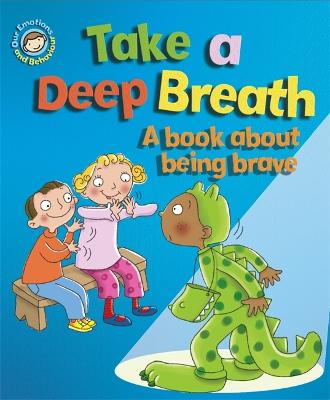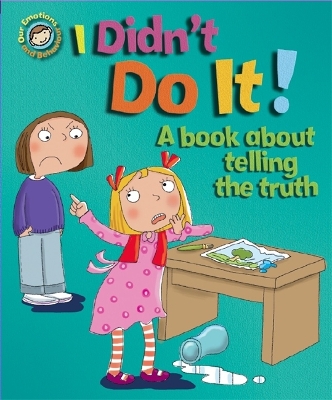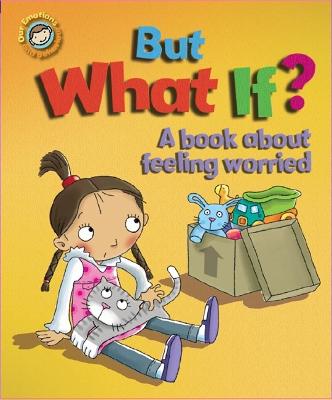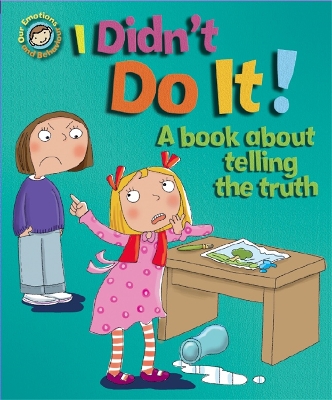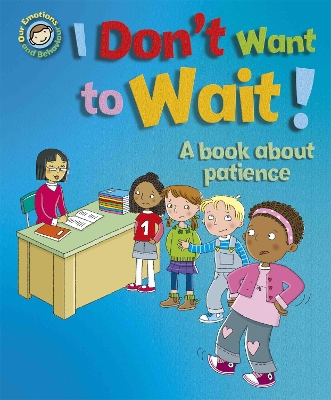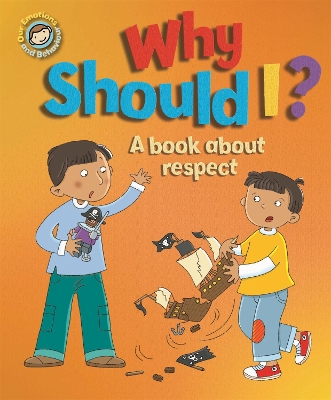Our Emotions and Behaviour
12 total works
Our Emotions and Behaviour: I'm Not Happy - A book about feeling sad
by Sue Graves
Ben's friends aren't happy. Amir has broken his best truck. Mick took Tim's football without asking, and Molly has lost her dog. How can Ben make his friends feel better?
This series introduces young children to different aspects of our emotions and behaviour. A fictional story is backed up by suggestions for activities and ideas to talk about, while a wordless storyboard encourages children to tell another story.
Our Emotions and Behaviour: I Want to Win! A book about being a good sport
by Sue Graves
A gentle picture book that examines the issues of competitiveness, frustration, patience and resilience in a reassuring way - perfect for young children who struggle with always needing to win. The story offers a way in to talk about our frustrations and how we can manage them, reinforcing good behaviour. At the end of the story, there are notes for parents and teachers with suggestions of ways to help children deal with the big emotions they experience.
Bella always needs to win - no matter what. She gets really cross if she is beaten at any game, and she is never gracious in defeat. If she isn't winning, she would rather give up than carry on trying. When Bella struggles in the den-building competition, she would much rather give up and not take part. But can she learn to keep going and do her best, and be a good sport to the winner?
This book is part of a series, Our Emotions and Behaviour, which is perfect for sharing with children as a gentle means of identifying and discussing their emotions, boosting their confidence and helping social and emotional development. Each book has a fun story which is backed up by suggestions for activities and ideas to talk through together and a wordless storyboard for children to tell a story themselves and reinforce the story's message. The series supports the Personal, Social and Emotional Development Area of Learning in the Early Years Foundation Stage.
Our Emotions and Behaviour: I Don't Want to Play Nicely: A book about being kind
by Sue Graves
A gentle picture book that examines the issues of selfishness, aggression and kindness in a reassuring way - perfect for young children who struggle with aggressive behaviour. The story offers a way in to talk about how our actions can make others feel and how we can make that better, reinforcing good behaviour. At the end of the story, there are notes for parents and teachers with suggestions of ways to help children deal with the big emotions they experience.
Finn struggles with caring for other children at school. He can be selfish and he often plays too aggressively. When the other children complain, Mr Hare has an idea. He chooses Finn as the buddy for Jake, a new boy at school. However, Finn does not help Jake, and the other children become really upset with Finn for being so unkind. Finn is soon left out by the other children and is left feeling miserable and lonely. Can Mr Hare help Finn find a way to make it all better?
This book is part of a series, Our Emotions and Behaviour, which is perfect for sharing with children as a gentle means of identifying and discussing their emotions, boosting their confidence and helping social and emotional development. Each book has a fun story which is backed up by suggestions for activities and ideas to talk through together and a wordless storyboard for children to tell a story themselves and reinforce the story's message. The series supports the Personal, Social and Emotional Development Area of Learning in the Early Years Foundation Stage.
Our Emotions and Behaviour: I Hate Everything!: A book about feeling angry
by Sue Graves
Josh doesn't like people looking at him and he's in the school play! Can Miss Button help him to be brave? And can Miss Button be brave when she is faced by something she doesn't like?
This series introduces young children to different aspects of our emotions and behaviour. A fictional story is backed up by suggestions for activities and ideas to talk about, while a wordless storyboard encourages children to tell another story.
Poppy doesn't always tell the truth at home. She doesn't always tell the truth at school either. Now she's getting other children into trouble. Can she learn that it's better to own up than to tell a lie?
This series introduces young children to different aspects of our emotions and behaviour. A fictional story is backed up by suggestions for activities and ideas to talk about, while a wordless storyboard encourages children to tell another story.
Daisy is moving to a new house and a new school. She is worried. What if she doesn't like her new neighbours or teacher? What if her cat runs away? Can Grandpa help her feel less worried?
This series introduces young children to different aspects of our emotions and behaviour. A fictional story is backed up by suggestions for activities and ideas to talk about, while a wordless storyboard encourages children to tell another story.
Our Emotions and Behaviour: I Didn't Do It!: A book about telling the truth
by Sue Graves
Poppy doesn't always tell the truth at home. She doesn't always tell the truth at school either. Now she's getting other children into trouble. Can she learn that it's better to own up than to tell a lie?
This series introduces young children to different aspects of our emotions and behaviour. A fictional story is backed up by suggestions for activities and ideas to talk about, while a wordless storyboard encourages children to tell another story.
Supports the Personal, Social and Emotional Development Area of Learning in the Early Years Foundation Stage. For children aged 3+
Our Emotions and Behaviour: I Don't Want to Wait!: A book about patience
by Sue Graves
A gentle picture book that examines the issue of patience in a reassuring way - perfect for young children who struggle with waiting their turn. The story offers a way in to talk about our frustrations and how we can manage them, reinforcing good behaviour. At the end of the story, there are notes for parents and teachers with suggestions of ways to help children deal with the big emotions they experience.
Maisy hates waiting for anything. She gets really cross if she has to wait her turn, at school or at home. When her sister Lola is late, and then Maisy has to wait for her to play, Maisy is really cross and upset. Lola teaches her some ways to be more patient. But will Maisy be able to show more patience at the park the following day?
This book is part of a series, Our Emotions and Behaviour, which is perfect for sharing with children as a gentle means of identifying and discussing their emotions, boosting their confidence and helping social and emotional development. Each book has a fun story which is backed up by suggestions for activities and ideas to talk through together and a wordless storyboard for children to tell a story themselves and reinforce the story's message. The series supports the Personal, Social and Emotional Development Area of Learning in the Early Years Foundation Stage.
Our Emotions and Behaviour: Why Should I?: A book about respect
by Sue Graves
A gentle picture book that examines the issue of respect in a reassuring way - perfect for young children who struggle with respecting possessions, or other people's space or opinions. The story offers a way in to talk about what respect is and why it is important, reinforcing good behaviour. At the end of the story, there are notes for parents and teachers with suggestions of ways to help children deal with the big emotions they experience.
Arin really struggles with showing respect for his own possessions or those of others. He doesn't see why he should respect other people's space or opinions either. But when everyone gets upset with him, Arin feels upset, too. Grandpa helps to explain how being respectful shows care for others, and how treating others how he wishes to be treated himself will make him, and others, feel happier.
This book is part of a series, Our Emotions and Behaviour, which is perfect for sharing with children as a gentle means of identifying and discussing their emotions, boosting their confidence and helping social and emotional development. Each book has a fun story which is backed up by suggestions for activities and ideas to talk through together and a wordless storyboard for children to tell a story themselves and reinforce the story's message. The series supports the Personal, Social and Emotional Development Area of Learning in the Early Years Foundation Stage.
